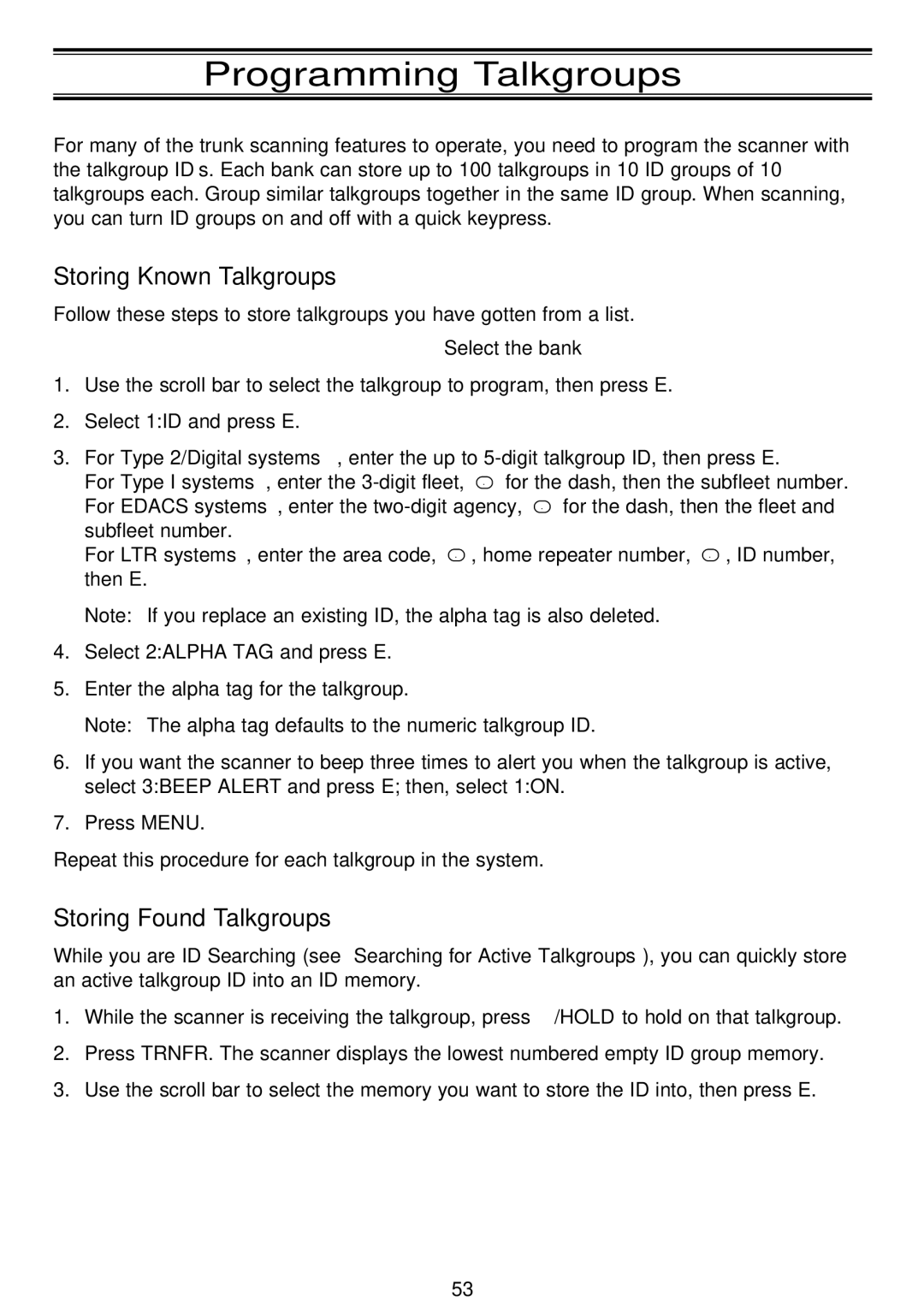
Programming Talkgroups
For many of the trunk scanning features to operate, you need to program the scanner with the talkgroup ID’s. Each bank can store up to 100 talkgroups in 10 ID groups of 10 talkgroups each. Group similar talkgroups together in the same ID group. When scanning, you can turn ID groups on and off with a quick keypress.
Storing Known Talkgroups
Follow these steps to store talkgroups you have gotten from a list.
2:SCAN OPTION → 2:TRUNK → Select the bank → 3:TALK GROUP
1.Use the scroll bar to select the talkgroup to program, then press E.
2.Select 1:ID and press E.
3.For Type 2/Digital systems, enter the up to
For Type I systems, enter the | . | for the dash, then the subfleet number. | ||
For EDACS systems, enter the | . | for the dash, then the fleet and | ||
subfleet number. |
|
|
|
|
For LTR systems, enter the area code, . | , home repeater number, . , ID number, | |||
then E. |
|
|
|
|
Note: If you replace an existing ID, the alpha tag is also deleted.
4.Select 2:ALPHA TAG and press E.
5.Enter the alpha tag for the talkgroup.
Note: The alpha tag defaults to the numeric talkgroup ID.
6.If you want the scanner to beep three times to alert you when the talkgroup is active, select 3:BEEP ALERT and press E; then, select 1:ON.
7.Press MENU.
Repeat this procedure for each talkgroup in the system.
Storing Found Talkgroups
While you are ID Searching (see “Searching for Active Talkgroups”), you can quickly store an active talkgroup ID into an ID memory.
1.While the scanner is receiving the talkgroup, press ▲/HOLD to hold on that talkgroup.
2.Press TRNFR. The scanner displays the lowest numbered empty ID group memory.
3.Use the scroll bar to select the memory you want to store the ID into, then press E.
53
